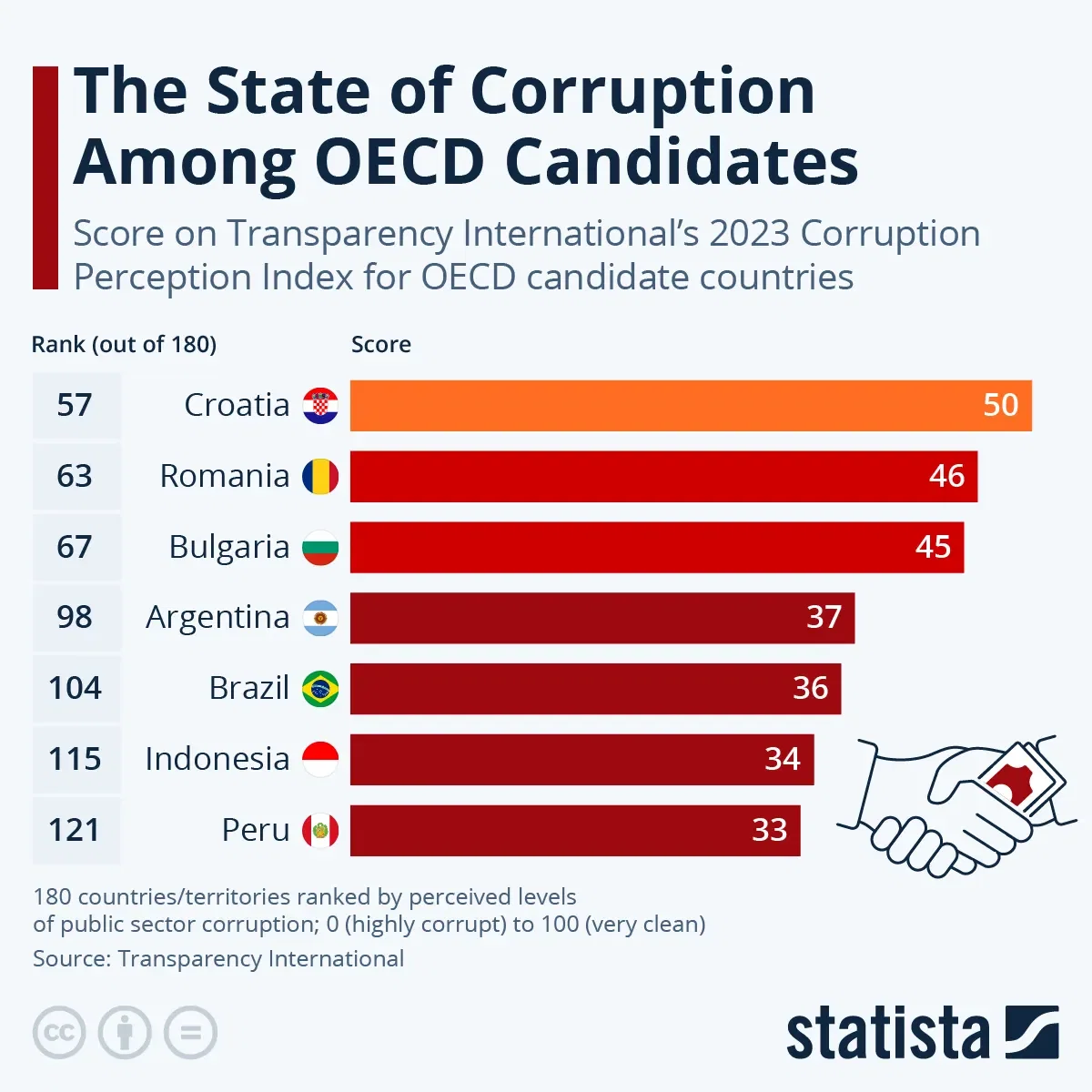Where Data Tells the Story
© Voronoi 2025. All rights reserved.

Indonesia is the latest country to have entered accession talks with the Organization for Economic Co-operation and Development. According to the Cabinet Secretariat of the Republic of Indonesia, the country is aiming to become a member state by 2027. The process can, however, take several years, with the most recent country to have become a member, Costa Rica, having taken six years to receive full membership, while Colombia took seven years and Chile took three. There is no hard deadline by which Indonesia must have gained full admittance to the group.
Several other countries are also currently vying to join the OECD. In South America there are three (Argentina, Brazil and Peru), as well as in Europe (Bulgaria, Croatia and Romania) and in Asia just the one (Indonesia). Among the reasons countries may choose to join the OECD are to attract foreign investment and to boost investor confidence, since membership requires each given country fulfill certain criteria, in areas such as anti-corruption, corporate governance, investment, competition, financial markets, public governance and environmental protection.
But there are several potential downsides to joining the OECD too. Some examples of these, as Retno Maruti and Andriansyah of the Intercept explain, are that the organization is “overly focused on the interests of developed countries and therefore does not appropriately consider the needs and perspectives of developing countries,” while at the same time, membership is perceived as a political choice and “may go against Indonesia’s free and active foreign policy stance.”
The following chart looks at just one of the indicators considered when the OECD makes a decision on whether or not to admit a new member: corruption. According to data from Transparency International, Indonesia received a score of 34 out of 100 on the 2023 Corruption Perception Index, where 0 is considered “highly corrupt” while 100 is considered “very clean”. This places the country in rank 115 out of 180 countries and territories and is the seventh worst category out of ten.
Of the seven countries currently looking to join the OECD, only Peru scored lower on this index, with 33 points, placing in rank 121 (although still in the seventh category). Meanwhile, Croatia performed best of the set, with 50 points. This is the same bracket as Italy and Poland - both of which are in the OECD - and places it in the fifth category of the ten.